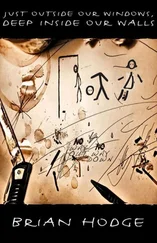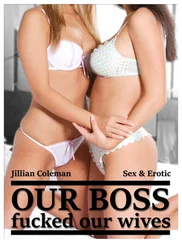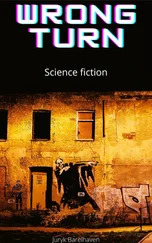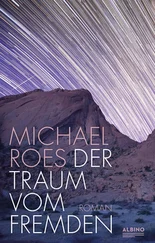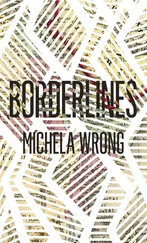Which is why so many eyes now rested on Kibaki and his NARC government. If they could get it right on corruption, if Kenya could only find its way, then perhaps there was hope for the rest of the continent. Post-apartheid South Africa, post-military Nigeria and a revived Kenya could come to form the three points of a geographical triangle of success establishing Africa on firm, unshakeable foundations.
The first announcements the new president made after unveiling his cabinet continued to send out the right signals. A brand-new post – Permanent Secretary in Charge of Governance and Ethics – was being created, Kibaki said. This anti-corruption champion, Kenya's version of Eliot Ness, would run a unit working out of State House and enjoying direct access to the president's office. And that key job was going to someone who seemed tailor-made for the role, a young, energetic Kenyan who had dedicated his considerable talents to the fight against graft. He just happened to be an old friend of mine.
I had known John Githongo since moving to Nairobi in the mid-1990s, when he was an up-and-coming columnist and I was the Financial Times 's Africa correspondent. Kenya's newspapers were good, among Africa's best, but their columnists suffered from parochialism. They didn't travel the region, they had little sense of Africa's position in the world, they sounded uncertain when tackling international issues. John, who wrote a think piece for the EastAfrican , a business weekly owned by the Aga Khan's Nation Media Group, was different. He had studied abroad, had travelled his own continent and had a sound grasp of geopolitics. His vision was sophisticated, his instincts compassionate, and he had the good journalist's ability, using colourful anecdote, to make complex arguments accessible to the ordinary reader. Limpid and articulate, his columns commanded one's attention, like a clear voice carrying across a room of cocktail chatterers.
I asked him to lunch. A giant walked in. ‘The Wrestler’, he would later be dubbed by staff at Kroll, the London-based risk consultancy group. But for most of us, the tag that automatically sprang to mind on first meeting was ‘the Big Man’. Standing well over six feet, he had girth as well as height, the fifty-eight-inch chest and massive shoulders of the gym habitué, the V-shaped silhouette of a comic-book superhero. He was a gift to any caricaturist, but this exaggerated outline was built of muscle, not fat – squeezing one of those rounded shoulders in greeting was like kneading a well-pumped football: the fingertips left no impression behind. It was a bully's physique, but no bully ever walked with his tentative, splay-footed step, the step of a man anxious not to tread on smaller mortals milling below. He wore his hair very short, snipped to virtual baldness to reveal a bull neck and a formidable jaw, something of a family feature. Faces in the Githongo family, I would later discover, had the all-weather implacability of Easter Island sculptures. He was a Kikuyu, but his enemies would later claim that he didn't look as though he belonged: too big, too tall, too dark. He photographed supremely badly – I never saw a photograph of John that made him look anything but stolid, loutish, slightly thick. Still only in his thirties, he looked older than his years, thanks to the receding hairline, deep baritone and seeming gravitas. In fact, John was prone to fits of the giggles. An inveterate conspiracy theorist, intrigued by tales of plots and subterfuge, he loved a meaty gossip. ‘Is that SO? Is that SOOO?’ he would whisper in fascination on being passed a nugget of clandestine information, mouth forming a round ‘O’ of wonder, eyes growing big as he dwelt on some VIP's quirk of character, or the little-known story behind some public political clash. And it was hard to think of anything, or anyone, that didn't interest his questing mind. Blessed with insatiable curiosity, he gobbled up experiences and insights in the same way he embraced new acquaintances.
He returned my lunch invitation by asking me along to a meeting of the Wednesday debating group, a serious affair where earnest young men in suits discussed topical issues. After that we saw each other only sporadically, but it always felt like time well spent. There was no hint of anything romantic, nor would there ever be. John was simply one of the most intellectually impressive young Africans I'd met, and each encounter left me optimistic for the country's future.
These were the days when Kenya's opposition parties were trying to get a constitution weighted in Moi's favour changed. Mounted on horseback, the dreaded GSU, Darth Vader-like in shields and helmets, charged supporters who dared defy a ban on public rallies, lashing out with truncheons and pick-axe handles. I remember venturing out behind John on a day when the oniony smell of tear-gas was still wafting along the city centre's deserted streets, and noting how nimbly he darted along the pavements and peeked round corners. His caution made me nervous. If a man his size was worried about running into the GSU, I thought to myself, then I should really watch out.
I began quoting John in my articles. Other Western journalists were also discovering him. Soon the name ‘John Githongo’ was cropping up in more and more media stories as a pundit. Then he'd left journalism to revive the local branch of Transparency International, an organisation established by his own father and a group of like-minded Kenyan businessmen disillusioned with Moi. He had found the perfect platform from which to hold a morally bankrupt government to account. John knew instinctively how the media could be mustered and energised to contribute to the democratic reform process – he'd been a journalist, after all. TI's carefully researched reports finally quantified Kenya's amorphous corruption problem, giving the media something solid to get their teeth into. John cultivated contacts, put out feelers, and sailed so close to the wind he found himself being offered political asylum by concerned fellow delegates after telling an anti-corruption conference in Peru what he knew about president Moi's portfolio of investments. The foreign governments who funded many of TI-Kenya's activities loved it. Here was concrete proof of how donor aid, cleverly directed, could bolster accountability in Africa.
While working at TI, John was also in discreet contact with the Kibaki team. He'd kept that side of things quiet, for the organisation was officially neutral, and had to be seen to remain above the political fray. But when Kibaki's aides approached, asking for concrete suggestions on how to build the opposition's anti-corruption strategy, he could hardly refuse. And in truth, at this stage in Kenya's history it was almost impossible to imagine that any idealistic young Kenyan could fail to wish NARC anything but success in the forthcoming contest.
In the wake of the 2002 inauguration I tracked John down with a fellow journalist, keen to hear his thoughts. We found him in frenetic mode, simultaneously hyped, exhilarated and exhausted. He had been part of the election-monitoring effort pulled together by the human rights bodies and advocacy groups that constituted Kenyan civil society, and was fielding a series of calls from reporters in search of quotes, repeating the same phrases again and again. Halfway through the conversation, he revealed another reason why he was so distracted. The Kenyan businessmen who sat on TI-Kenya's board, old friends of both his father and Kibaki, had been in touch. ‘The wazee [old men] have put my name forward as someone to lead the fight against corruption.’ His laugh was half-embarrassed, half-excited. ‘It looks as though the new team is going to offer me a post in government.’
My heart sank. I could see exactly why any new government would want John. No Kenyan could rival his reputation for muscular integrity, or enjoyed as much respect amongst the foreign donors everyone hoped would soon resume lending. In co-opting him, the incoming administration would be neatly appropriating a highprofile symbol of credibility, proof personified that it deserved the trust of both the wananchi and its Western partners. But I remembered all the other shining African talents I'd seen warily join the establishment they had once attacked, persuaded that finally the time was ripe for change, only to emerge discredited, beaten by the system they had set out to cure.
Читать дальше



